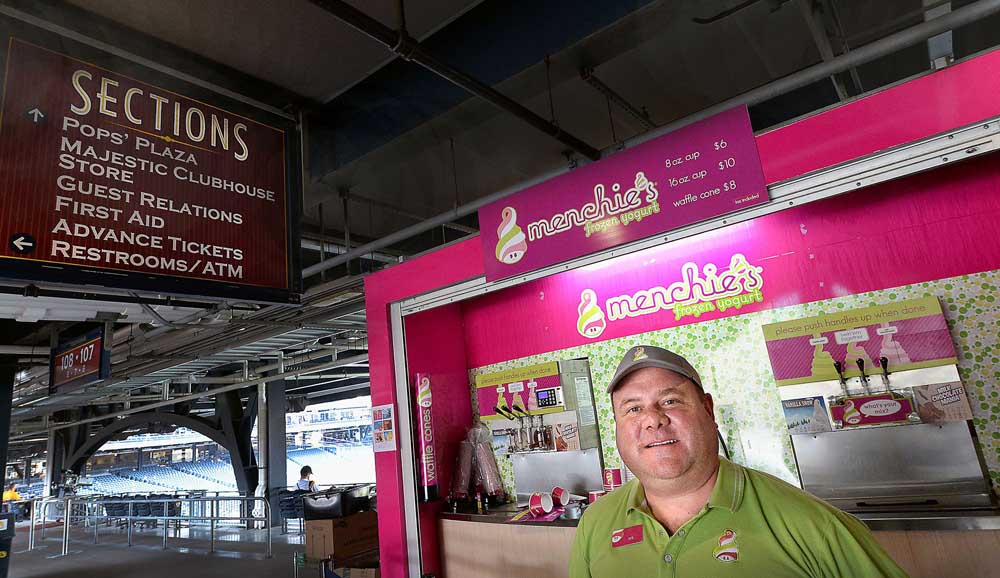Fledgling franchisees use Uber to make ends meet
Published 12:00 am Wednesday, July 27, 2016

- Peter Diana / Pittsburgh Post-Gazette via Tribune News ServiceErik Lingren owns two Menchie’s Frozen Yogurt franchises, including one at PNC Park, home of the Pittsburgh Pirates. He continues to drive for Uber as a safety net.
PITTSBURGH — For the first time in 25 years, Erik Lingren was out of work but overqualified.
After leaving his job as executive director of the nonprofit Venture Outdoors and deciding to go into business for himself, Lingren was at a crossroads. Or, as he likes to say, a bridge.
Trending
For months, he sat in interviews with managers who were younger and less experienced than he was until June 2014 when he became the boss again. This time his office was his four-door Tacoma pickup truck, as he registered to be an Uber driver to fill the financial gap as he started a Menchie’s Frozen Yogurt franchise.
Lingren and his brother-in-law, John Barnoski, who was also an Uber driver at one point, purchased and transferred ownership of their first franchise location in September 2015. The pair invested approximately $35,000 in franchise fees for a multi-unit package. Their seasonal location in PNC Park, home of the Pittsburgh Pirates, represents their second location and they’re bringing a third Menchie’s location to Pittsburgh later this year.
The stores currently employ 18 fro-yo enthusiasts who finish every order with “have a smiley day.” Another 12 to 15 employees are projected to be hired for the new store, which has a tentative opening for Labor Day.
Between Uber and Menchie’s, Lingren figures he works roughly 50 to 65 hours a week, although he’s taken a hiatus from driving in the last few months to focus on his franchise operation.
He hasn’t deleted his account, though. The average Menchie’s store costs between $229,557 and $425,310 in startup costs including inspection costs, equipment and opening inventory, according to the company website.
Early on, Lingren set a goal: He would drive three days a week and earn $100 each day to cover his house payments.
Trending
“Just because I was transitioning from being one type of employer to self employed, the bank didn’t care. They still wanted their mortgage (payment),” he said.
Even when he was driving consistently, he would often take off weeks at a time for employee training at his franchise. This type of flexibility works for what Pittsburgh-based consultant John Tubridy calls “corporate refugees.”
Not all of Tubridy’s clients are as outspoken about their new venture as Lingren.
Many are used to demanding, but lucrative, work environments. They see Uber and Lyft as a way to maintain their lifestyles, he said. “It’ll never show up on their résumé, but it’s something to keep the house afloat,” he said.








